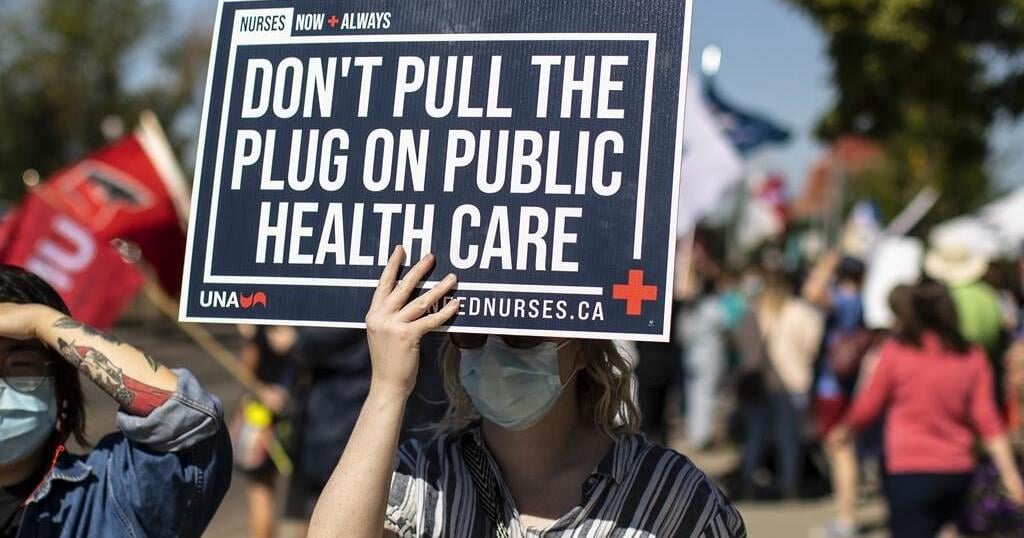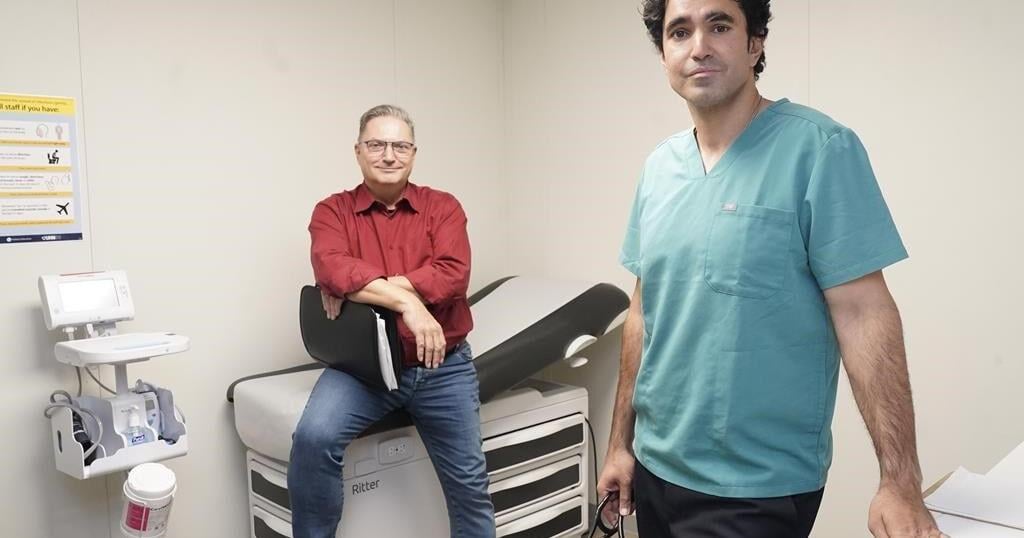TORONTO – A new housing project for those who live on the streets and frequently end up in the emergency room is set to welcome its first residents in Toronto this month, supported by one of the largest hospital networks in Canada.
The University Health Network has partnered with Fred Victor, a non-profit housing organization, to provide 51 permanent homes with health and social supports to homeless people who use its hospitals the most. The hope is that the project will ease pressures on hospitals while also providing stable care for vulnerable individuals.
“What we’re trying to build is this continuum of care out from the hospital where people can be discharged to a safe and stable setting that is their home,” Dr. Andrew Boozary, the executive director of the Gattuso Centre for Social Medicine at UHN, said in an interview.
“The treatment for the homelessness crisis is housing and, beyond housing, there needs to be these health and social supports in place.”
The project, named Dunn House, is officially opening Thursday, with residents expected to move in over the coming weeks and months.
UHN has earmarked all 51 apartments in the building for those who use its hospitals frequently and were willing to move there, Boozary said. The homes are set to help unhoused individuals with complex medical and social needs.
Some people who were set to move in have died before the project’s opening, which highlights the need for such a space, Boozary said.
“We lost a number of people who’ve been coming in and out of the hospital at UHN in hopes of trying to help them move in, but they didn’t live to see this day,” he said.
“But this is the reality of the mortality and morbidity facing people who are unhoused.”
Toronto, like many communities large and small across the country, is dealing with a surge in homelessness, driven in part by the high cost of living, mental health struggles and the opioid addiction crisis.
The city’s shelters are full, with some 12,000 people. There are also several hundred people living on the streets, in parks or in encampments across Toronto.
Boozary will be one of the physicians working in the new space, which was built on a hospital-owned parking lot.
The modular, four-storey building will have fully furnished studio apartments with a kitchenette, living area, bedroom and bathroom. And 15 of the units will be barrier free for those who use mobility devices. There will also be a health clinic inside the building, Boozary said.
The residents will have a variety of community-based supports available in addition to doctors, including psychiatric help, case management support, justice help, harm reduction resources, and prepared meals.
The melding of health and housing is badly needed, said Keith Hambly, CEO of Fred Victor, an organization with experience in shelters and supportive housing.
“I think we all in some ways recognize the vital need of health and housing,” he said.
“Making that absolute link between the two for this particular population was in a way a no-brainer, but also one that is something that should have happened a number of years ago.”
The building will be staffed 24 hours a day, including by those with extensive experience dealing with ingrained trauma.
There is also a large community space for the residents to make of it what they wish. Hambly said they’ll likely have art classes, cooking classes and perhaps pottery classes.
The hospital network and Fred Victor partnered with all three levels of government to get the project done, something that has been in the works for about five years.
The city helped construct the building, the province is providing funding for health care and the federal government provided funds from its rapid housing initiative. United Way is providing food support while Inner City Health Associates will provide doctors and nurses. The Parkdale Queen West Community Health Centre will also be involved.
Boozary and his team have long looked at the number of visits and time spent in emergency rooms and in-patient beds by those who are homeless. The data triggered an idea for him: the hospital must get into the housing game.
At UHN, 100 patients without fixed addresses accounted for 4,309 emergency department visits over the past year, Boozary said. That represents about three per cent of all emergency room visits.
Over a recent six-month period, just one per cent of such patients accounted for 15 per cent of emergency room visits and 32 per cent of all visits to in-patient units.
One patient set to move into the new building had 249 emergency department visits and spent nine total days in hospital over the past year, which accounted for about $120,000 in hospital costs, Boozary said.
Another patient had 156 emergency department visits and spent 260 total days in hospital over the last year, a cost of more than $400,000.
“This is not that people want to be in the emergency department, it is that they have nowhere else to go and they just are sicker,” Boozary said.
Long-term homelessness is bad for health. Life expectancy plummets by half with chronic homelessness, Boozary said.
Rates of cancer and chronic disease are also significantly higher for those without homes compared to the general population, he said.
The housing project should also help the hospital free up beds used by so-called “frequent flyers.”
“You’ll see a real benefit to the individuals that can ensure human dignity and improved health outcomes while also helping it address some of the system pressures that are in place,” Boozary said.
He realizes 51 new homes will not solve the homelessness crisis, but hopes the project becomes a model for other institutions to emulate.
“The hope is that this can provide somewhat of a playbook for other jurisdictions or other partnerships between every level of government, between hospital and community, to try to advance concrete solutions for people,” Boozary said.
This report by The Canadian Press was first published Oct. 3, 2024.


























